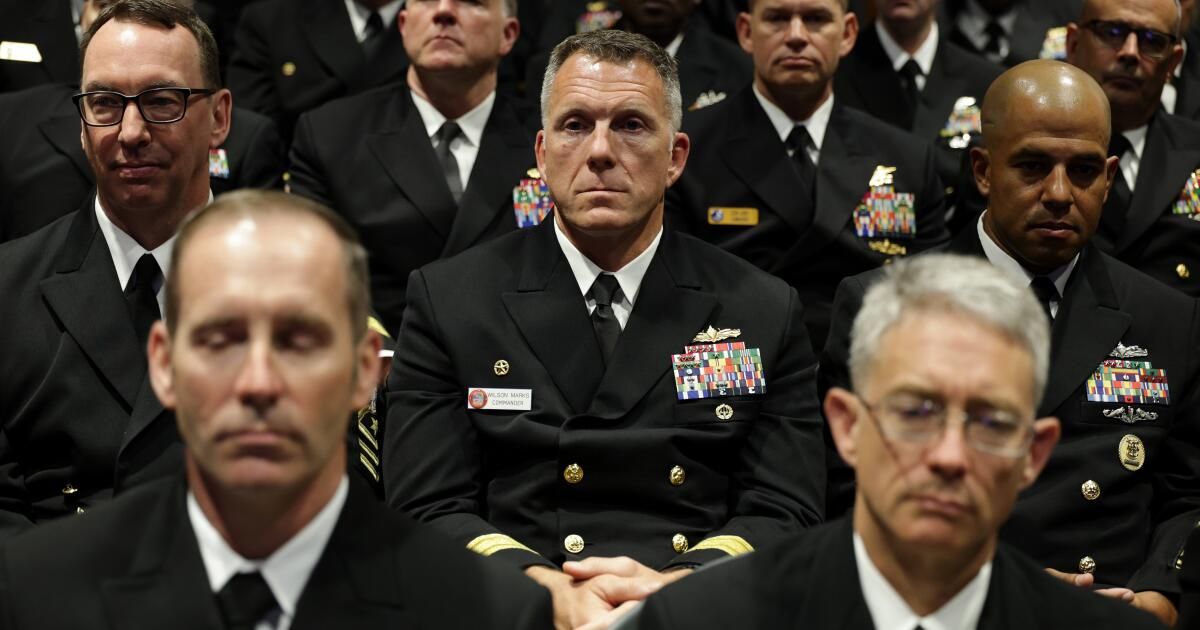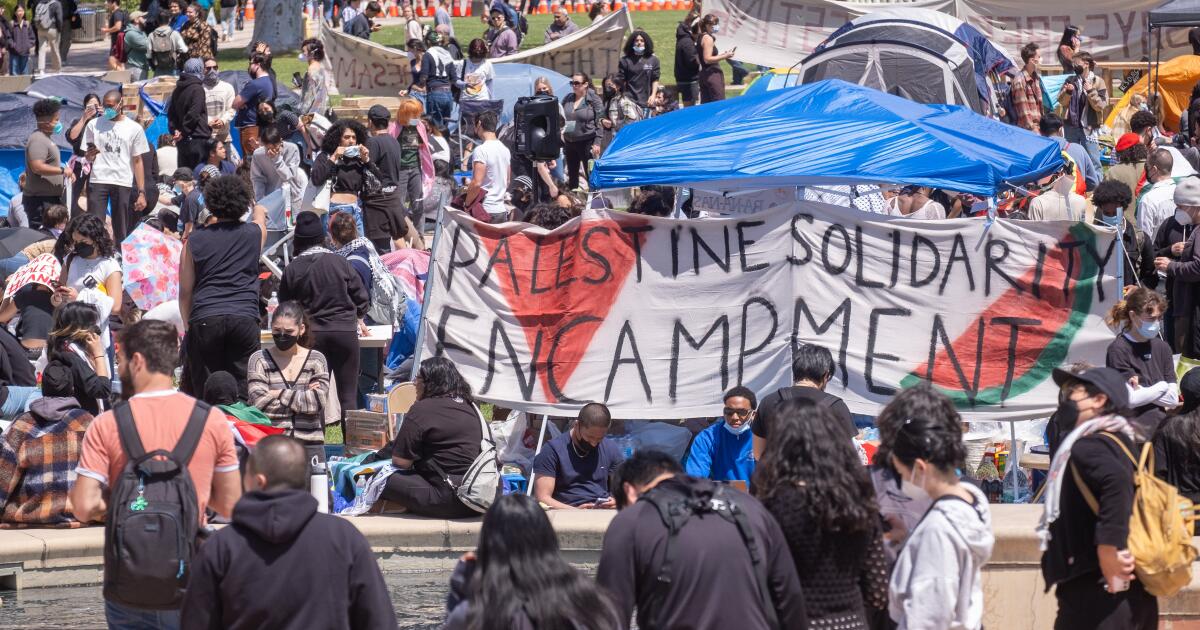If killing men on ships at sea were really legal, we wouldn't need a secret memo to say so.
According to the Washington Post, the Department of Justice's Office of Legal Counsel quietly assured Last week, the Department of Defense declared that US service members cannot be prosecuted for the more than 20 “ship attacks” that have killed at least 80 people in the Caribbean and Eastern Pacific. A memorandum like that does not speak the language of legality. It speaks the language of blame management and accountability avoidance. When a government must preemptively promise immunity to its warriors, it is admitting that it has crossed a line.
This is not an isolated excess. It is the continuation of a moral collapse that has unfolded, memo after memo, over decades of American war. The George W. Bush administration wrote the first of these permits was lost when his lawyers redefined torture as “enhanced interrogation.” The Obama administration terminated those opinions—then used the same machinery of justification rationalize drone strikes, including one that killed a US citizen in 2011 and another who killed his 16-year-old son. The party in charge may change, but the grotesque logic endures: If you can't fix it, make it legal.
President Trump and Secretary of Defense Hegseth have taken that logic to the open sea. Missiles fired from US planes are destroying little open-hulled speedboats suspected of transporting drugs. There are no declarations of war, no charges, no trials. The Pentagon insists that these killings are “legal orders,” vetted by lawyers.up and down the chain.” That phrase should shock anyone who has ever worn a uniform. No law applicable to armed conflict allows execution without combat. No one on those ships can justifiably be classified as a combatant. There is no moral universe in which vaporizing human beings in the middle of the ocean is an act of justice.
Our allies see what we refuse to admit. The United Kingdom supposedly stopped sharing intelligence for these missions, unwilling to be complicit in acts that violate international law.
Within the military, corrosion runs deeper than any political debate surrounding it. Officers trained throughout their careers in principles such as proportionality and restraint have outsourced their conscience to the legal process. The logic is that if the lawyers have approved, ethics no longer needs to enter the equation. The “legal” justification acts as a kind of moral anesthesia. But each order carried out under that logic erodes the institution that gives it and the soul of the person who obeys it.
The phrase “legal orders” has become the military's institutional sedative. We repeat it to exempt ourselves from thinking, to pretend that justice can be delegated to paperwork. No matter how many knots a lawyer ties to get there, legality is not legitimacy. A classified memo cannot wash the blood from the conscience of an institution once defined by its moderation. The rule of law that once distinguished American power from the impunity of tyrants has been deliberately dismantled, one opinion at a time.
Most officers can distinguish between orders that uphold our values and those that contradict them. They are not ignorant; they have simply been given permission to look the other way. The invented legality offers coverage and the system rewards those who adopt it. For years, the military has promoted compliance and punished candor, building a culture that confuses loyalty with agreement and obedience with virtue. Now the nation expects that same culture to stand up to a president willing to order what is illegal. It won't. That is the danger we create. A system built for obedience cannot muster courage when ordered. That should terrify everyone.
For those who took comfort in the stoicism of the generals. during Trump's September speech at Quanticobelieving it reflected discipline or moderation, understand this: that silence meant something completely different. It means they will leave quietly. They will hold their noses and carry out illegal orders (kill orders, no less) rather than defy the system that issues them. It is a surrender disguised as order.
Expecting more from those who lead the nation's military is not unfair: it's the job. Military leaders swore to defend the Constitution, not to obey a man. We don't talk about it much, but that oath is a life or death commitment. Carry the burden of moderation and the courage to say no when it matters most.
What makes a nation worth serving is not its power but its willingness to limit it. The rule of law made our power credible and our service honorable. We are losing that not through defeat, but through surrender: one silent act of submission at a time. No memo can correct that.
Jon Duffy is a retired Navy captain. His active duty career included command roles at sea and homeland security. Writes about leadership and democracy.
Perspectives
Perspectives from the LA Times offers AI-generated analysis of Voices content to provide all points of view. Insights does not appear in any news articles.
point of view
Perspectives
The following AI-generated content is powered by Perplexity. Content is not created or edited by the Los Angeles Times editorial staff.
Ideas expressed in the piece.
- A classified Justice Department memo granting immunity to military personnel involved in the attacks demonstrates official recognition of potential wrongdoing rather than genuine legality, since truly legal killings would not require preemptive immunity protection.
- The attacks continue a decades-long pattern in which successive presidential administrations, from the Bush era to the current administration, have used legal opinions to retroactively justify actions that might otherwise constitute illegal conduct, whether by redefining torture or rationalizing drone strikes.
- International law does not allow execution without trial or active combat, and those who are attacked on ships cannot fairly be classified as combatants under any legitimate interpretation of the law of armed conflict.
- The UK's reported decision to withdraw intelligence support for these missions reflects serious international legal concerns about whether the attacks comply with established law.
- Military institutional culture has evolved to encourage officers to outsource ethical judgment to legal counsel, allowing the concept of “legal orders” to serve as a substitute for independent moral reasoning.
- Military leaders swore an oath to defend the Constitution rather than obey a particular president, creating a fundamental duty to reject orders they consider violate the law and constitutional principles.
Different points of view on the subject.
- The military operations target ships involved in drug trafficking, treating the attacks as legitimate national security operations designed to intercept narcotics in international waters.[1][2].
- Government officials and Pentagon leaders maintain that these operations are carried out as legal orders subject to legal review and verification by lawyers throughout the chain of command, as noted in the article.












